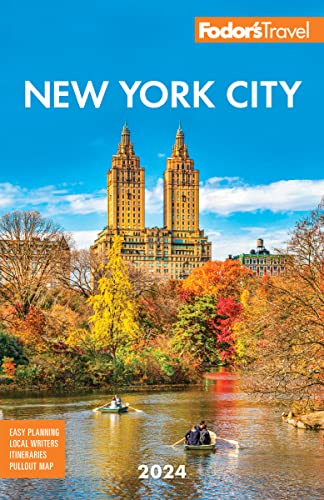Lodging
There are more hotel rooms than ever in New York City, as exciting new properties continue to open their doors not only in Manhattan but in Brooklyn and the outer boroughs as well. But does that mean that New York is cheap? Well, we wouldn’t say cheap, but you can still find some deals, especially if you’re not set on a specific property or neighborhood, and if you don’t mind a few extra minutes of commuting time.
Hotels continue to slash rates based on market sensitivity—especially if you and all of those other Internet-savvy shoppers are willing to wait until the last minute. That said, if you want to stay in a specific place and the rate seems reasonable, book it—it's just as likely to go up, especially during peak seasons (spring and fall).
How to choose? The first thing to consider is location. Many New York City visitors insist on staying in the hectic Midtown area—and options are improving there—but other neighborhoods are often just as convenient. Less touristy areas, such as Gramercy, the Lower East Side, the Upper West Side—even Brooklyn—provide a more realistic sense of New York life, too.
Also consider timing: the least expensive months to book rooms in the city are January and February. If you're flexible on dates, ask the reservationist if there's a cheaper time to stay during your preferred traveling month—that way you can avoid peak dates, like Fashion Week and the New York City Marathon. Be sure to ask about possible weekend packages that could include a third night free. (The Financial District in particular can be a discount gold mine on weekends.)
Another source of bargains? Chain hotels. Many have moved into the city and charge reasonable room rates. In addition to favorites like the Sheraton, Hilton, and Hyatt brands, there are Best Westerns, Days Inns, and Comfort Inns. These rates aren't as low as you find outside Manhattan, but they're certainly getting closer.
Need a Reservation?
Hotel reservations are a necessity when planning your trip to New York. Competition for clients also means properties must undergo frequent improvements, especially during July and August, so when booking, ask about any renovations, lest you get a room within earshot of noisy construction, or temporarily (and inconveniently) without amenities such as room service or spa access.
Services
Unless otherwise noted, all hotels listed have private baths, central heating, air-conditioning, and private phones. Many now have wireless Internet (Wi-Fi) available, though it's not always free. Most large hotels have video or high-speed checkout capability, and many can arrange babysitting. Pools are a rarity, but most properties have gyms or health clubs, and sometimes full-scale spas; hotels without facilities usually have arrangements for guests at nearby gyms, sometimes for a fee.
Accessibility
Despite the Americans with Disabilities Act (ADA), the level of accessibility seems to differ from hotel to hotel. Some properties may be accessible by ADA standards for people with mobility disabilities, but not for people with hearing or vision impairments, for example.
If you have a hearing impairment, check whether the hotel has devices to alert you visually to the ring of the telephone, a knock at the door, and a fire/emergency alarm.
If you're bringing a service dog, you're not required to let the hotel staff know ahead of time (they must accommodate your service dog regardless); however, you may wish to notify them in advance as a courtesy.
Family Travel
New York has gone to great lengths to attract family vacationers, and hotels have followed the family-friendly trend. Some properties provide such diversions as in-room video games. Most full-service Manhattan hotels provide babysitting, and stroller rental, but be sure to make these arrangements when booking, not when you arrive. New York City hotel rooms are smaller than average, and some may not accommodate roll-away beds even though many hotels offer them. Most hotel rooms in New York City have a maximum number of legal occupants, so check with the hotel instead of making assumptions.
What About an Apartment Rental?
Many people looking to save money on accommodations look for apartments to rent on a short-term basis. Whether you use AirBnB or some other platform, understand that apartment rentals of non-owner-occupied units for less than 30 days are illegal in New York City (and often prohibited by building regulations). Scams are common, so if you rent an apartment, take special care to rent in a way that you are fully covered if something goes wrong. Always pay with a credit card, and never wire money. Ever. Most listed apartments in New York City are illegal. You can legally rent a room in an occupied apartment or house but generally not the full unit for your own private use.
Does Size Matter?
If room size is important to you, ask how many square feet a room has, not just if it's big. A hotel room in New York is considered large if it's 500 square feet. Very large rooms are 600 square feet. To stay anywhere larger, book a multiroom suite. Small rooms are a tight 150–200 square feet, sometimes less.
Prices
There's no denying that New York City hotels are expensive, but rates run the full range. For high-end hotels like the Mandarin Oriental at Central Park, prices start at $795 a night for a standard room in high season, which runs from September through December. At the lower end of the spending spectrum, a bunk at the Jane starts at $99 for a single. But don't be put off by the prices printed here—many hotels slash their rates significantly for promotions and online-only deals.




